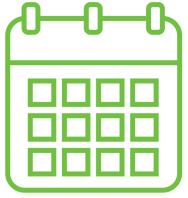 About two years ago, Gretchen (my BubbleUp Classroom co-collaborator) and I decided to start a blog. Up until then, the only thing I knew about blogs was that I liked to occasionally read them. We started for two reasons: 1) to make our BubbleUp Classroom website more dynamic and interesting; and 2) we were persuaded by some teacher talk at an Edcamp that as educators we have a moral responsibility to share our work so that as a group of professionals we can all strive to meet a common goal -- to help educate our students (and I by our, I mean all students in the world) in the best way possible. And so, we started our blogging journey. We had no idea what we were getting into -- or what we would get out of it -- but I can promise you that it has changed me as an educator (perhaps more than anything). We are nearing our 100th post, and I really hope this piece encourages you to blog (either on your own) or to write a post for an already existing site. You can. It's worth it. Other kids and teachers are out there, waiting for you to share your learning. You just might change the world -- and you will definitely change yourself. So here (in no particular order) are the ways blogging has changed me and more importantly, how you can go about getting started on your own blog. 1. You'll reflect more than ever (and that will mean that you will make more improvements that ever to your classroom). My stepmom (a teacher of over thirty years) told me when I first started that what good teachers do is monitor and adjust. All day, everyday. I really don't think there is a day in the classroom that those words don't bounce around in my head. Something goes wrong; I identify it; I try to fix it. Now as a regular blogger, I reflect more deeply on what is working and what isn't. I know that I have to be absolutely honest in my reckoning with educational practices and trends because, rather than debating what works in my head, I am putting it on paper for the world to see. It forces me to carry out my reflection fully; rather than cutting it short and moving on to the next solution. As a result, my teaching practice has improved because I am delving deep into the why between what works and what doesn't. 2. You'll stay current. You can't be a good blogger and teach in a bubble. I am far more aware than ever before of the latest trends in education. I read the books, the articles and rely on Twitter to point me in different directions in search of ideas for what works best for kids. To be relevant in the Blogosphere you need to know who is who and what is what. If you are already tuned in, blogging will likely make you more aware of what's happening outside of your own classroom, school and district. If you are already pretty steeped in the outside world of education, blogging will make you delve deeper as you connect these trends, ideas and policies to your own teaching practice.  3. You'll grow your Personal Learning Network (PLN). As people have followed our blog, we've made more friends in the teaching world. They follow me on Twitter, I follow them, and suddenly we are learning from one another -- sharing perspectives and practices. Having a Blog is like sending a giant blinking sign into the universe saying that I am here to learn and grow from any educators that are willing to engage. And it has a cascade effect, one person becomes two, and then ten and then 50 and your network grows and so does your learning. 4. You'll improve your writing. Blogging is different from other writing that I have done. It has to be clear, accessible and chatty in a way that other things don't. By writing at least twice a month (and editing my co-collaborator's posts twice a month) I have honed my writing skills, my social media savviness and my writing speed. If you are hoping to one day write a book, blogging is a great place to start and a wonderful way to practice writing for an audience. 5. You'll collaborate more than ever. I am a collaborator by nature. I find my teacher "people" and share, share and then share some more. However, I think that blogging has made my collaboration less haphazard by putting me on a schedule. I have to talk through things with colleagues as I gather my ideas and put them in writing. Moreover, I have to reach out to people for ideas, input and guidance on things that I am trying and then eventually blogging about. Blogging makes collaboration a reflex, a must.  So how do I start? 1. Find a site to host your blog. We use Weebly but I also know people use Blogger, WordPress and others. Look around and see what best meets your needs. I am not a techie person and lucky for you, these sites are designed for people who don't have a ton of techie skills. If I can do it, you can do it. Trust me. 2. Consider working with a partner. The key to my success as a blogger is that I'm not in it alone. Gretchen and I always work together when we get stuck. We have a built in editor and collaborator in one another. Plus, and this can be really important for some folks -- an accountability partner in the beginning. If you are blogging alone you might be willing to skip a deadline, but when you know your collaborator is counting on you -- no way will you miss it. Once you have followers who read your blog regularly, your audience becomes your accountability partner. We have never missed posting on a Tuesday since we started because we know people have integrated us into their lives and their day. 3. Consider creating a structure to vary your posts. At BubbleUp Classroom, we bounce between two different posts -- reflection and sharing posts where we talk about a lesson idea or trend, and then posts that we call Take5, which highlight other news and blogs in the educational world. This means that we aren't doing the same kind of blogging week to week. Somehow this makes the whole thing seem less daunting and more doable. It spices it up and keeps us from getting bored of a one-size fits all approach. 4. Make a list of ideas before you go live with your first post. It can be tempting to write one post and put it out there for the world to see. I recommend writing a few that you are ready to post. This way if you run in to a tough week and can't get a moment to write you already have something ready to go. This keeps the blog from falling apart. I think sometimes people don't post once and then somehow they never go back. So remove this stumbling block and have a few ideas written out, ready to go.  5. Make a schedule and stick with it. Can't commit to once a week. Choose twice or once a month. I recommend settling on a day of the week or month and sticking to it. Also, don't be afraid to start small. You can always start with a once a month post and then increase as time goes on. However, I do think that scheduling is key. if you want to have a lot of readers they appreciate knowing when to expect your post. 6. Keep a list -- using old fashioned paper or a Google doc, keep a running list of ideas. It's the best way to fight off writer's block. Ideas come at weird times and sometimes when you need them the least -- so do yourself a favor and throw them somewhere for when you brain is fried and the ideas aren't flowing. 7. Learn how to use Canva if you haven't already-- It's easy. I promise. It's a quick way to make your own graphics for your blog post and there are plenty of free options to choose from. That said, spend a little time playing around with it before you start to blog. You can start by making your blog logo. Sounds fun, right? It is. 8. Choose a catchy name for your blog and make sure it is one that you love. We chose BubbleUp Classroom because it fits with our philosophy -- when teachers share, great ideas "bubbleup." I am so happy that we chose a name that we both love because when we started I don't think we realized that this name would become part of our professional identity or a name that we spent so much time with. I mean 100 posts? So put time, thought and love into the name. You just might be seeing it for a while. 9. Figure out how you want to highlight your blog out in the universe. If you just make a blog and that's it -- no one will read it, no matter how good it is. Figure out ways to share it. Consider Twitter, Instagram, or even creating a Facebook Page. Also, find teacher Facebook groups to share your blog site with. 10. Stop when you aren't having fun. I speak for both of us when I say that our blog is our hobby, our joy, our fun. If it ever felt like work, or a chore, we wouldn't do it. When I click on a post and see that it's been read by more than 1000 people I know I am making a difference. I love the idea that an activity we've made or a new teaching practice I've written about is being used by educators throughout the world. Teaching is about making a difference. Turns out, that blogging about teaching is about making a difference too. So stop wondering whether you should blog and get started. We are waiting to read your blog post and so is the rest of the teaching world. So what are you waiting for?
-Corey
0 Comments
Your comment will be posted after it is approved.
Leave a Reply. |
Who We Are
Join our list!Archives
September 2020
Categories
All
|






 RSS Feed
RSS Feed